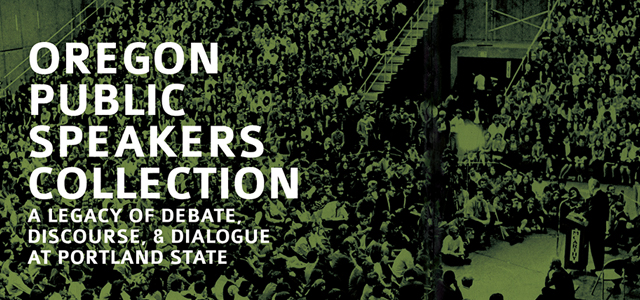Date
4-1-1965
Length
29 minutes
Notes
John Ciardi, an American poet, translator, and etymologist, translated Dante's Inferno (1954), Purgatorio (1961), and Paradiso (1970).
In this lecture Ciardi discusses literary structure, relationships, and moral philosophy in Dante's Inferno. The recording is incomplete, beginning and ending in the midst of his presentation.
Transferred and preserved by Portland State University Library’s Special Collections with the generous support of the Institute of Museum and Library Services through the Library Services and Technology Act, administered by the Oregon State Library.
Subjects
Dante Alighieri -- 1265-1321, Content Analysis, Epic poetry
Original Format
Reel to reel, 7.5 ips, 1/2 track, mono
Rights
This digital access copy is made available as streaming media for personal, educational, and non-commercial use only. It cannot be reproduced in any form, distributed or played for commercial purposes. It is made accessible because of one or more of the following situations: the rights are owned by State Board of Higher Education, on behalf of Portland State University; Portland State University has permission to make it accessible; it is made accessible for education and research purposes under fair use; or there are no known restrictions on use. In the event that previously unknown information is shared that may change the status of this item, it will be immediately removed from public view until pertinent rights issues are clarified.
Persistent Identifier
http://archives.pdx.edu/ds/psu/11064
Recommended Citation
Ciardi, John, ""The Longest Walk in the Universe"" (1965). Special Collections: Oregon Public Speakers. 11.
http://archives.pdx.edu/ds/psu/11064
Included in
Medieval History Commons, Medieval Studies Commons, Poetry Commons



Description
Transcript added August 24, 2021.
PSU Library Special Collections and University Archives presents these recordings as part of the historical record. They reflect the recollections and opinions of the individual speakers and are not intended to be representative of the views of Portland State University. They may contain language, ideas, or stereotypes that are offensive to others.